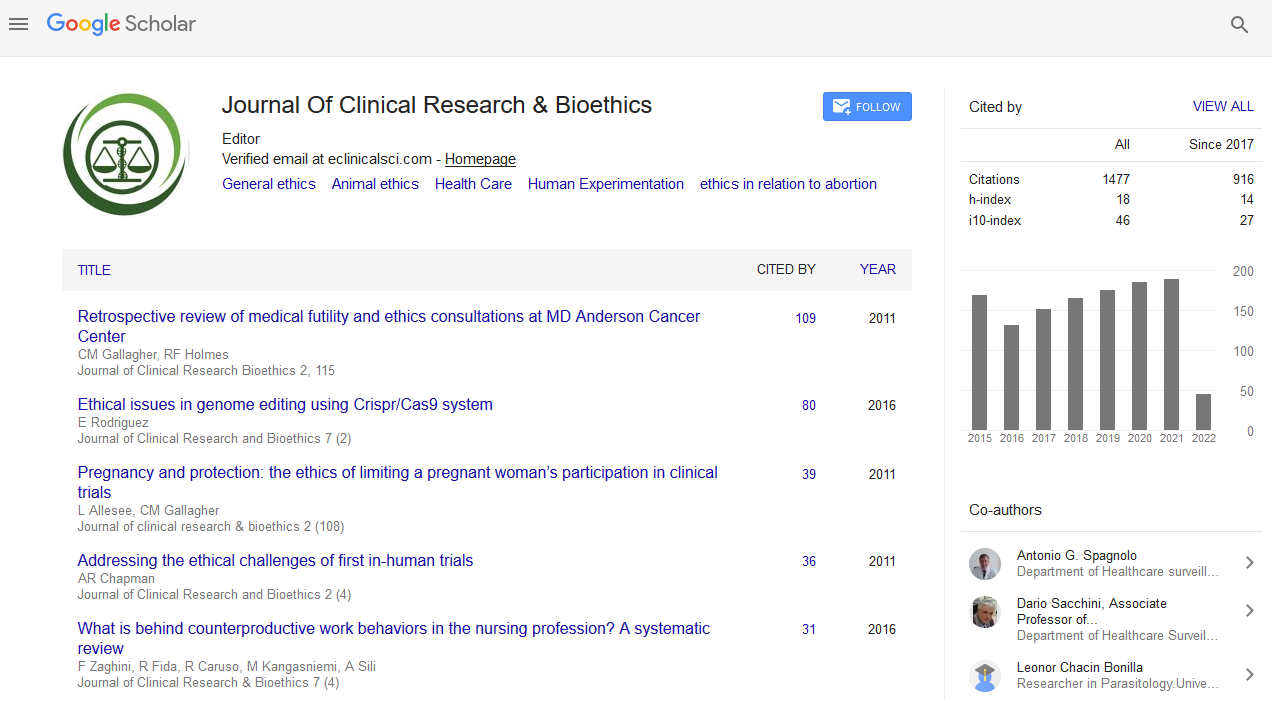PMC/PubMed Indexed Articles
Indexed In
- Open J Gate
- Genamics JournalSeek
- JournalTOCs
- RefSeek
- Hamdard University
- EBSCO A-Z
- OCLC- WorldCat
- Publons
- Geneva Foundation for Medical Education and Research
- Google Scholar
Useful Links
Share This Page
Journal Flyer

Open Access Journals
- Agri and Aquaculture
- Biochemistry
- Bioinformatics & Systems Biology
- Business & Management
- Chemistry
- Clinical Sciences
- Engineering
- Food & Nutrition
- General Science
- Genetics & Molecular Biology
- Immunology & Microbiology
- Medical Sciences
- Neuroscience & Psychology
- Nursing & Health Care
- Pharmaceutical Sciences
Abstract
Ethics Pertaining to the Legalities of Male Routine Infant Circumcision and Surrogate Consent to Non-Therapeutic Surgery
Jason A. Domashevskiy and Artem V. Domashevskiy
Circumcision is the most contentious surgery performed in the world today. Approximately 38% of the world male population has been circumcised, mostly during the neonatal and prepubescent periods. Circumcision in regularly practiced ubiquitously throughout the Islamic countries, Israel, and the United States; the US is only country who regularly circumcises its boys for a non-religious reason. No world health body advocates circumcision prior to adulthood. Routine Infant Circumcision (RIC) violates the United Nations Policy on Genital Integrity, the Hippocratic Oath taken by doctors, and the rules for surrogate consent to surgery. Studies have shown no benefits to circumcision during the neonatal period, and only potentially marginal benefits later in life. The decision of the parent to have their infant boy circumcised is a clear violation of the boys’ right to grow up naturally. Cultural and religious biases serve to make the subject of circumcision taboo, where an attack upon it is seen to be an assault on American culture or freedom of religion. Ethically the choice is clear, maintain the child of sound mind and body until he reaches the age of majority, at which point he may decide for himself whether or not to be circumcised. To do otherwise is to irrevocably alter the boys’ body and mind, destroying the most basic right, the right to bodily integrity.


